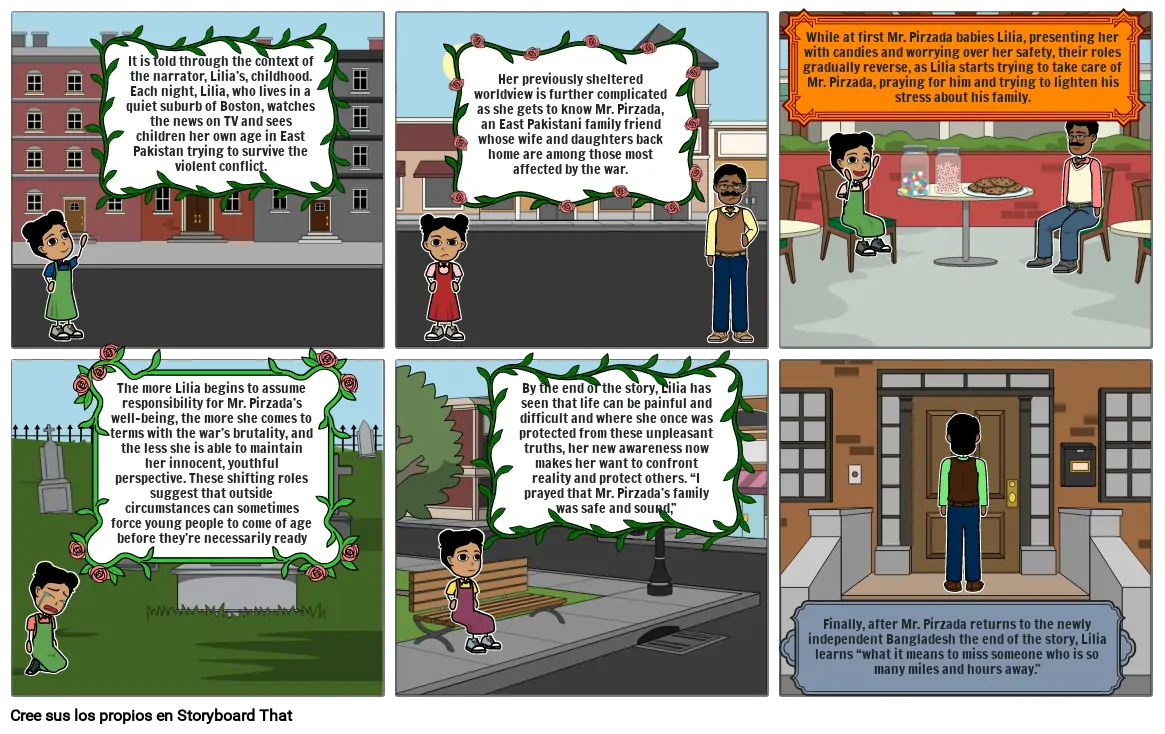When Mr. Pirzada Came to Dine

نص القصة المصورة
- The more Lilia begins to assume responsibility for Mr. Pirzada’s well-being, the more she comes to terms with the war’s brutality, and the less she is able to maintain her innocent, youthful perspective. These shifting roles suggest that outside circumstances can sometimes force young people to come of age before they’re necessarily ready
- It is told through the context of the narrator, Lilia’s, childhood. Each night, Lilia, who lives in a quiet suburb of Boston, watches the news on TV and sees children her own age in East Pakistan trying to survive the violent conflict.
- Her previously sheltered worldview is further complicated as she gets to know Mr. Pirzada, an East Pakistani family friend whose wife and daughters back home are among those most affected by the war.
- While at first Mr. Pirzada babies Lilia, presenting her with candies and worrying over her safety, their roles gradually reverse, as Lilia starts trying to take care of Mr. Pirzada, praying for him and trying to lighten his stress about his family.
- By the end of the story, Lilia has seen that life can be painful and difficult and where she once was protected from these unpleasant truths, her new awareness now makes her want to confront reality and protect others. “I prayed that Mr. Pirzada’s family was safe and sound,”
- Finally, after Mr. Pirzada returns to the newly independent Bangladesh the end of the story, Lilia learns “what it means to miss someone who is so many miles and hours away.”
تم إنشاء أكثر من 30 مليون من القصص المصورة

